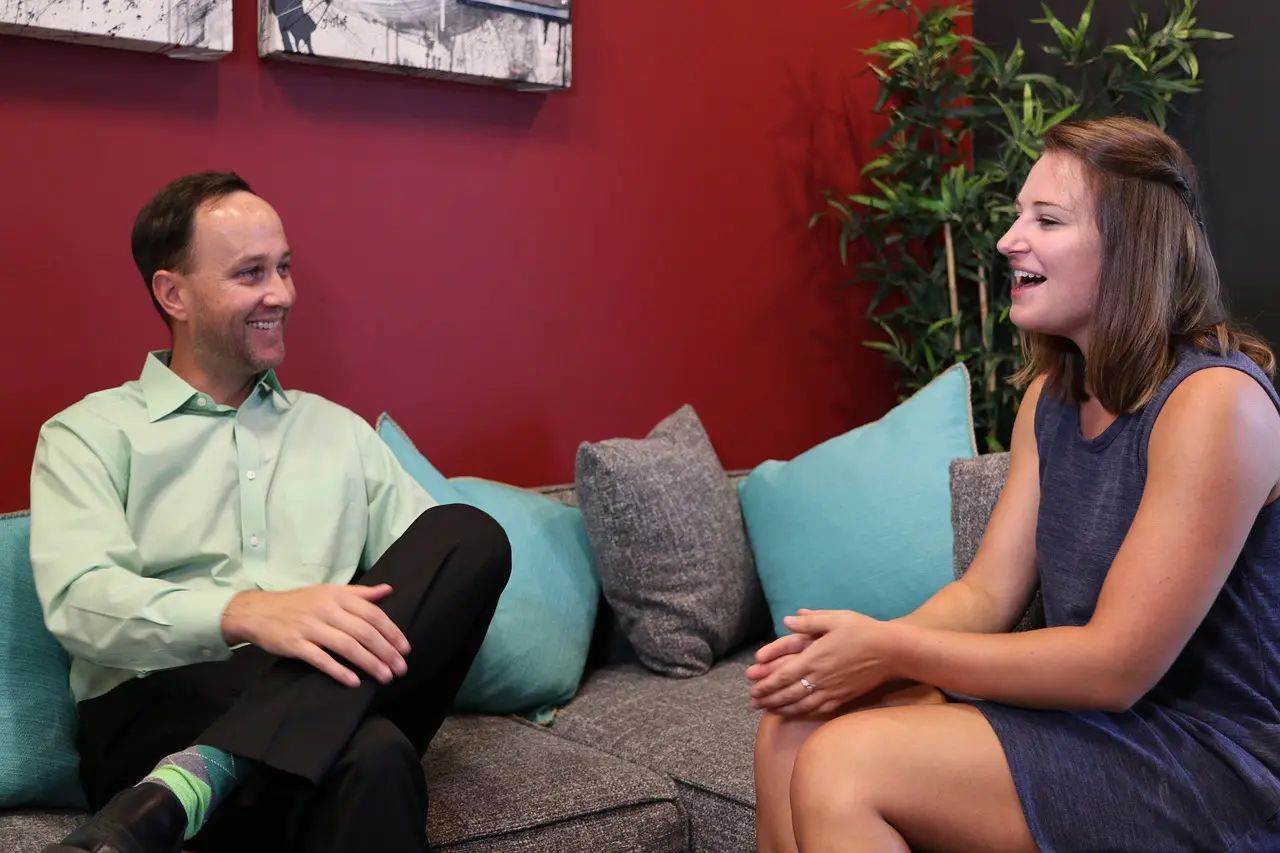Building a High-Performance Marketing Team Collaboration for 2024
Share now

In the fast-paced world of marketing, success often hinges on effective marketing team collaboration. Collaborative marketing teams can bring together individuals with different skills to tackle complex marketing projects comprehensively. They can develop well-rounded campaigns that resonate with the target audience on multiple levels.
Collaborative creative marketing teams can draw inspiration from different perspectives, resulting in more creative and impactful marketing strategies. This allows them to adapt faster to industry changes by pooling their knowledge and experience, helping the agency to stay ahead of trends.
At 8 Figure Agency , we will break down how to foster a collaborative environment and build cohesive marketing teams capable of conquering the challenges of the ever-evolving market.
Understanding Marketing Team Collaboration in Marketing Agencies
Marketing team collaboration refers to the process of individuals with diverse skills and expertise working together to achieve common goals. It involves the active sharing of ideas, knowledge, resources, and responsibilities to create and execute effective marketing strategies and campaigns.
In a marketing agency, collaboration extends across various functions such as creative design, content creation, data analysis, strategy development, client management, project management, and more.
Importance of Communication and Trust in Collaboration
Effective marketing team collaboration hinges on clear and open communication. Team members must articulate their ideas, expectations, and concerns to ensure everyone is on the same page. Clear communication helps prevent misunderstandings, reduces errors, and facilitates the exchange of valuable insights.
Trust is the foundation of successful marketing team collaboration. Team members need to trust each other’s skills, judgment, and commitment. When trust exists, individuals are more likely to share ideas without fear of criticism, leading to a more dynamic and innovative team dynamic.
Benefits of Collaboration in Marketing Agencies
Marketing team collaboration is a fundamental pillar of success in marketing agencies.
Enhanced Creativity and Innovation
Collaboration encourages the merging of diverse perspectives, leading to more creative teams and innovative marketing solutions. Combining different viewpoints and skills often results in unique and effective campaign ideas.
Comprehensive Campaigns
Marketing campaigns require various elements, from content creation to design and analysis. Collaboration ensures that each aspect is covered by experts in the field, leading to well-rounded and impactful campaigns with marketing automation.
Efficient Problem-Solving
When challenges arise, a collaborative team can both manage resources and pool their expertise to identify solutions quickly. A collective effort can lead to faster problem-solving and decision-making.
Improved Client Satisfaction
Collaborative sales teams can better understand client needs and preferences. This understanding translates into more tailored and effective marketing strategies , ultimately leading to higher client satisfaction.
Skill Synergy
Marketing campaigns involve a blend of skills, including creativity, data analysis, project planning and management, and more. Collaboration allows different teams to leverage each other’s strengths, compensating for weaknesses and resulting in higher-quality outputs.
Cross-Learning
In a collaborative environment, team members can learn from one another during group projects. This cross-team collaboration and learning fosters professional development and enables individuals to expand their skill sets and improve collaboration and campaign management.
Higher Employee Engagement
When team members are actively engaged in collaboration task management, they feel valued and invested in the agency’s success. This engagement can boost morale , job satisfaction, and employee retention .
Creating a Collaborative Environment
Fostering a collaborative environment in a marketing agency is key to maximizing the potential of the creative assets on your team and achieving exceptional results across the marketing funnel.
Developing a Shared Vision and Mission
Establish a clear and inspiring vision for the agency’s future, outlining the collective goals and aspirations. A shared mission helps align team communication efforts toward a common purpose. When everyone understands the agency’s purpose and direction, marketing team collaboration becomes more meaningful and focused.
Building Trust through Effective Communication
Encourage open, honest, and respectful communication among team members. Regular team meetings, one-on-one discussions, and brainstorming sessions provide opportunities to share ideas, clarify doubts, build trust, and be on the same page. When team members and creative assets feel heard and valued, trust is nurtured, leading to stronger collaboration.
Ensuring Diversity and Inclusivity
A diverse team brings a variety of perspectives, experiences, and skills to the table. Embrace diversity in hiring practices and create an inclusive environment where every team member feels valued, respected, and empowered to share their ideas. Diversity fosters a richer pool of insights and enhances problem-solving capabilities.
Encouraging Creativity and Innovation
Create a safe space where team members are encouraged to think outside the box and share unconventional ideas. Celebrate creativity and reward innovative thinking. Regular brainstorming sessions, workshops, and exposure to diverse sources of inspiration can stimulate fresh ideas and unique approaches to marketing challenges.
Building a High-Performance Team
Building a high-performance team in a marketing agency is essential for a great marketing team, achieving exceptional results and maintaining a competitive edge. Here are key strategies to consider:
Setting Clear Goals and Expectations
Clearly define the agency’s goals, both short-term and long-term. Communicate these goals to the team so that everyone understands the agency’s direction and what needs to be accomplished. Well-defined goals provide a shared purpose and motivation for the entire team to work collaboratively toward success.
Defining Roles and Responsibilities
Clearly outline the roles and responsibilities of each team member with an organizational chart . Clearly defined roles prevent overlaps and confusion, ensuring that everyone knows their contributions and areas of expertise. This clarity enhances efficiency and minimizes conflicts.
Leveraging Individual Strengths and Skills
Recognize and leverage the unique strengths and skills of each team member. Assign tasks and manage projects based on individual expertise to maximize efficiency and quality. When team members are working within their strengths, they are more engaged and likely to excel.
Providing Opportunities for Professional Development
Invest in your team’s professional growth by offering opportunities for learning and development. This could include workshops, training sessions, webinars, and conferences. Encouraging continuous learning not only improves individual skills but also enhances the team’s overall capabilities.
Encouraging a Growth Mindset
Promote a culture of continuous improvement and a growth mindset. Encourage team members to embrace challenges, learn from failures, and constantly seek ways to enhance their skills and performance. A growth mindset fosters resilience and adaptability, crucial qualities in the ever-evolving marketing landscape.
Tools and Techniques for Collaboration
Collaboration is enhanced by utilizing a variety of tools and techniques that facilitate communication, coordination, and teamwork. Here are some effective tools and techniques for collaboration within a marketing agency:
Project Management Tools and Software
Project management tools and the best marketing collaboration software help teams organize tasks, set deadlines, track progress, and allocate resources. Popular project management software options include Trello and Asana . These tools provide visibility into project timelines, assignments, and updates, making collaboration more efficient.
Communication Channels and Platforms
Effective team communication is crucial for collaboration. Utilize a communication and marketing collaboration tool based on your team’s preferences, including:
- Slack : For real-time, instant messaging tools, file sharing, and team channels.
- Microsoft Teams or Zoom : For video conferencing, meetings, and virtual collaboration.
- Google Workspace (formerly G Suite) : For collaborative document creation, sharing, and editing.
Collaboration Exercises and Activities
Engage in team-building exercises and collaboration activities to foster better relationships and enhance teamwork:
- Brainstorming Sessions : Regular brainstorming encourages idea-sharing and creative problem-solving.
- SWOT Analysis : Collaboratively analyze strengths, weaknesses, opportunities, and threats for a project or strategy.
- Role Reversal : Have team members swap roles temporarily to gain new perspectives and insights.
Team-Building Events and Outings
In-person or virtual team-building events can boost team cohesion and morale:
- Off-Site Retreats : Plan retreats where team members can focus on strategy, bonding, and skill-building in a relaxed setting.
- Games and Competitions : Organize friendly competitions or team challenges that promote collaboration and teamwork.
- Lunches or Happy Hours : Informal gatherings can provide a platform for team members to connect on a personal level.
Challenges and Solutions for Collaboration
Remember that addressing challenges and conflicts in a collaborative environment requires a proactive approach and a commitment to open communication.
Common Challenges Faced in a Collaborative Environment
Communication Breakdowns
Miscommunication, lack of clarity, or ineffective communication channels can hinder collaboration.
Role Ambiguity
When roles and responsibilities are unclear, team members might duplicate efforts or neglect important tasks.
Differing Work Styles
Team members may have diverse work styles, leading to conflicts in approaches and preferences.
Time Zone and Location Differences
In global or remote marketing teams , varying time zones and physical locations can make synchronous marketing team collaboration difficult.
Strategies for Overcoming Barriers to Collaboration
By implementing the following strategies, you can create a more harmonious and effective collaborative atmosphere within your marketing agency.
Establish Clear Communication Channels
Implement a clear communication strategy with guidelines for when and how to communicate. Use marketing team collaboration tools that facilitate transparent and timely communication.
Define Roles and Expectations
Clearly define roles, responsibilities, and expectations for each team member. Regularly review and update these definitions as projects evolve.
Measuring Collaboration and Performance
In a marketing agency, measuring collaboration and performance is essential to ensure that the marketing and sales teams are working effectively, achieving goals, and continuously improving. Here’s how you can approach measuring collaboration and performance :
Measuring Team and Individual Performance
To measure team and individual performance, you must highlight the following:
- Project Completion Rate: Track the percentage of projects completed successfully within their designated timelines. This provides an overview of the team’s efficiency.
- Quality of Deliverables: Assess the quality of work produced by the team, considering factors like creativity, accuracy, and alignment with client expectations.
- Client Satisfaction: Use client feedback and satisfaction surveys to gauge how well the sales team’s work meets client needs and expectations .
- Individual Contribution: Assess individual team members’ contributions to projects. This could include factors like their level of involvement, expertise, and impact on the outcome.
- Adaptability to Change: Measure how well the team responds to changes in projects, strategies, or industry trends. The ability to adapt demonstrates a high level of cross-functional collaboration and agility.
Providing Constructive Feedback and Recognition
Here are a few ways to provide constructive feedback:
- Regular Feedback: Offer consistent and constructive feedback to team leaders and members. Highlight strengths and suggest areas for improvement to foster growth.
- Recognition: Acknowledge and celebrate achievements, both small and large. Recognizing individual and team efforts boosts morale and motivation.
- Individual Development Plans: Collaboratively create development plans for each team member. These plans should outline goals, areas for improvement, and opportunities for skill enhancement.
- 360-Degree Feedback: Encourage peers, subordinates, and supervisors to provide feedback on an individual’s collaboration and performance. This comprehensive feedback offers a well-rounded perspective.
- Performance Reviews: Conduct regular performance reviews where individual and team performance are discussed. Use these discussions to set new goals and address any challenges.
Building a High-Performance Team With 8 Figure Agency
Building a high-performance marketing agency team requires fostering a collaborative environment, recognizing individual strengths, and nurturing a growth mindset.
Collaboration fuels creativity, efficient problem-solving, and client satisfaction.
8 Figure Agency encourages you to embrace collaboration to elevate your marketing agency to new heights. A collaborative team is a powerful force that can conquer challenges and achieve remarkable results.
Book a consultation today and let’s get you started building a high-performance digital marketing team.
The post Building a High-Performance Marketing Team Collaboration for 2024 appeared first on 8 Figure Agency.
Search
Recent Post



